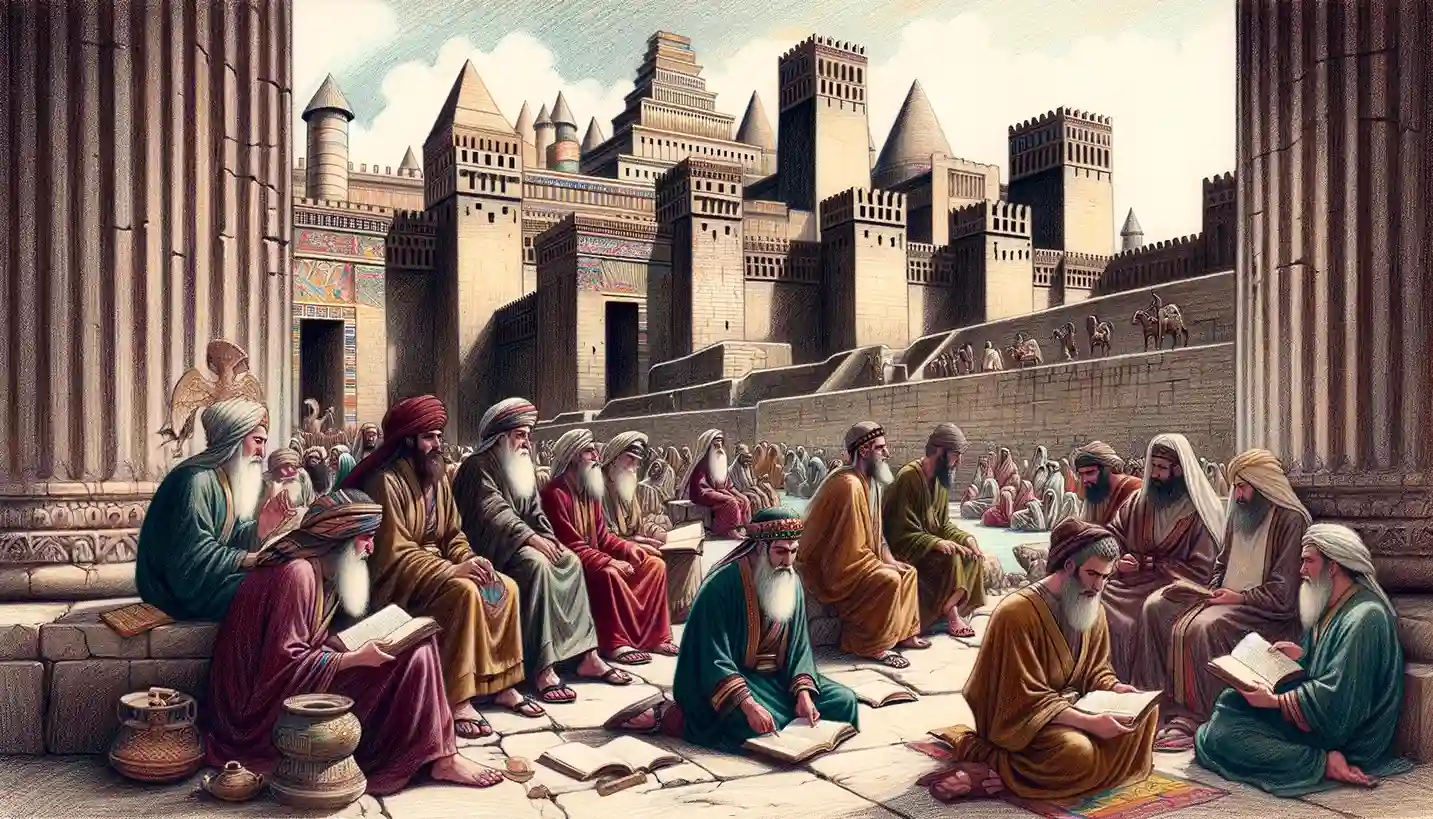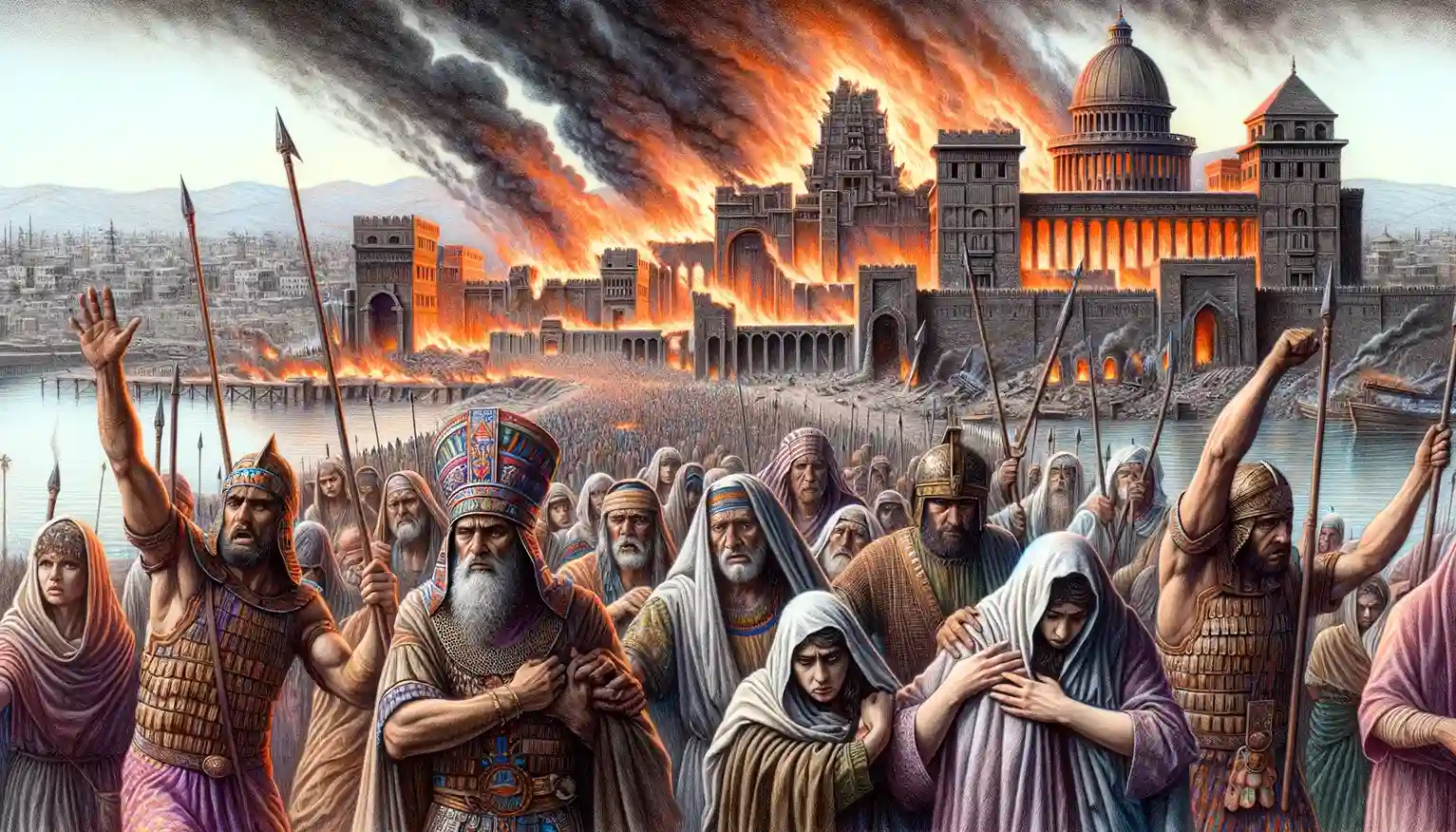Babylon, located in ancient Mesopotamia, is historically significant as the site of the Jewish exile. This event, known as the Babylonian Captivity, had a profound impact on Jewish history, culture, and religious practices, shaping the development of Judaism.
The Babylonian Captivity, which began with Nebuchadnezzar II’s destruction of Jerusalem and its temple in 586 B.C., was a pivotal 70-year period during which the Jewish people were exiled to Babylon, marking a time of profound theological reflection and transformation that emphasized the importance of the Torah and led to significant developments in Jewish identity and religion, culminating in their return to Jerusalem under Cyrus the Great’s decree in 538 B.C.
The story of Daniel in the lion’s den, as detailed in Daniel 6, vividly illustrates the triumph of faith and divine protection, showcasing how Daniel’s unwavering commitment to his prayerful relationship with God leads to his miraculous preservation from harm, even under the decree of King Darius, thus affirming the sovereignty and providential care of God over His faithful servants.



